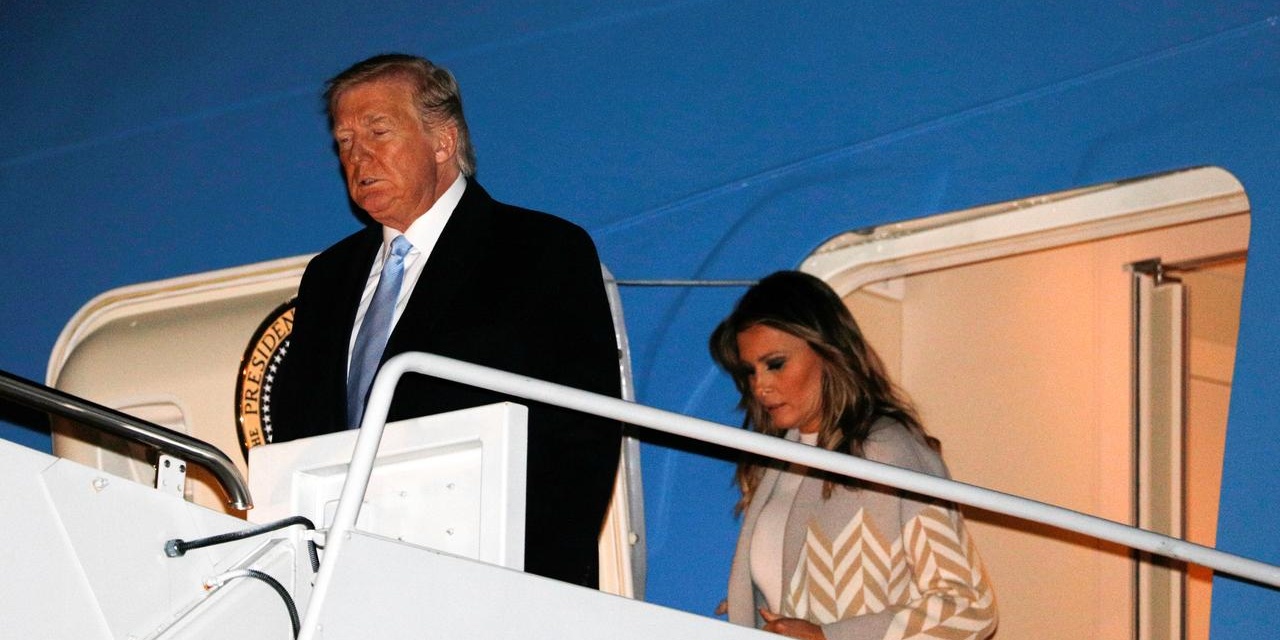Donald Trump reacts erratically as the Iraq Parliament votes to expel US troops after Friday’s assassination of top Iranian commander Maj. Gen. Qassem Soleimani by an American drone.
The Iraqi legislators approved a bill on Sunday that requires the Government to end the presence of the 5,200 American personnel in the country, almost 17 years after the US war to remove Saddam Hussein from power.
The vote was 170-0, but many Kurdish and Sunni MPs did not attend the session of the 328-seat chamber.
Prime Minister Adil Abdel Mahdi has to sign the measure, but he has issued a public statement in favor of the American departure and drafted the language of the bill.
Analysts have questioned if Iraq’s authorities can carry out the expulsion. Abdel Mahdi is due to leave office soon, and the bill did not give a timetable for action.
See also EA on talkRADIO: Journey Through TrumpLand — Trump, Iran, and The Trial
EA on Monocle 24 and BBC: A US-Iran Showdown After Assassination of Gen. Soleimani?
But Trump’s reaction went far beyond an assessment of the situation. He railed to reporters:
We have a very extraordinarily expensive air base that’s there. It cost billions of dollars to build, long before my time.
If they do ask us to leave, if we don’t do it in a very friendly basis, we will charge them sanctions like they’ve never seen before ever. It’ll make Iranian sanctions look somewhat tame.
Colin Kahl, National Security Advisor to Vice President Joe Biden, assessed that Trump “has lost his mind”.
The Iraqi Parliament had authorized the US presence in 2014, as the Islamic State took over 1/3rd of Iraq. Under Sunday’s bill, the Strategic Framework Agreement remains in place but American troops stay “only at the invitation of the Iraqi Government”.
On Sunday, the US-led coalition in Iraq and Syria said it is pausing its mission of fighting ISIS and training local forces.
No Answers as Iran Responds
The Trump Administration suffered another blow when Iran said it is halting all commitments under the 2015 nuclear deal with the 5+1 Powers (US, UK, France, Germany, China, and Russia).
The move opens the way for Tehran to return to its pre-2015 production of 20% uranium, which potentially can be further enriched to military-grade 90%.
Trump withdrew the US from the agreement in May 2018 and imposed comprehensive sanctions in November 2018. However, the agreement remained in place with European Governments urging Iran to remain for the sake of stability in the region.
Iran’s Rouhani Government suspended some commitments from June after it failed to establish a link with the European Union to bypass the US sanctions. However, while stepping up uranium enrichment from 3.67% to 4.5%, it was careful not to move all the way to 20%.
Secretary of State Mike Pompeo represented the Administration on six Sunday talk shows, but had no answers over the American approach after the Iraqi and Iranian steps. Instead, he said 14 times that the problem was the Obama Administration and its Iran policy, including the 2015 agreement.
Under that agreement, Iran’s nuclear program was constrained for 15 years.
Pompeo also chided European countries for not offering vocal support for Friday’s assassination of Soleimani and Abu Mahdi al-Muhandis, the leader of an Iranian-supported Iraqi militia, outside Baghdad International Airport.
“The Brits, the French, the Germans all need to understand that what we did, what the Americans did, saved lives in Europe as well,” Pompeo asserted.
European governments have not openly criticized Trump over the assassination, but they have expressed concern about the consequences and urged de-escalation.
German Defense minister Annegret Kramp-Karrenbauer said on Sunday, “Iraq cannot be allowed to sink into chaos, and certainly not under the control of extremists. Therefore, it is important not to let up now in the fight against Islamic State.”
UK Foreign Minister Dominic Raab said Soleimani’s killing was “a right of self-defense” and called the commander a “regional menace”.
But Prime Minister Boris Johnson is reportedly angered that Trump did not inform US allies about the decision, because of the heightened risk to European citizens and troops in the region. Raab said he had spoken to Iraqi Prime Minister Mahdi and planned to speak to Iran’s Foreign Minister Mohammad Javad Zarif.
Meanwhile, Trump showed no sign of letting up in his provocative statements. He repeated to reporters his Twitter threat to bomb Iranian cultural sites:
They’re allowed to kill our people. They’re allowed to torture and maim our people. They’re allowed to use roadside bombs and blow up our people. And we’re not allowed to touch their cultural site? It doesn’t work that way.


I’m trying to put myself in the position of your average Iranian. If a foreign power threatened to bomb the cultural heritage of my country to dust — unless I possessed a personal vendetta against my own government due to something like a death of a close relative — I cannot see myself as doing anything but providing utmost support to it in the case of conflict, regardless of whether it’s stalinist, fascist, theocratic, progressive, monarchist, or anything in-between. It’s really one of those scenarios that brooks no middle ground.
Shame Kazemi hasn’t posted in ages. I’d love to hear his perspective as an Iranian-American.